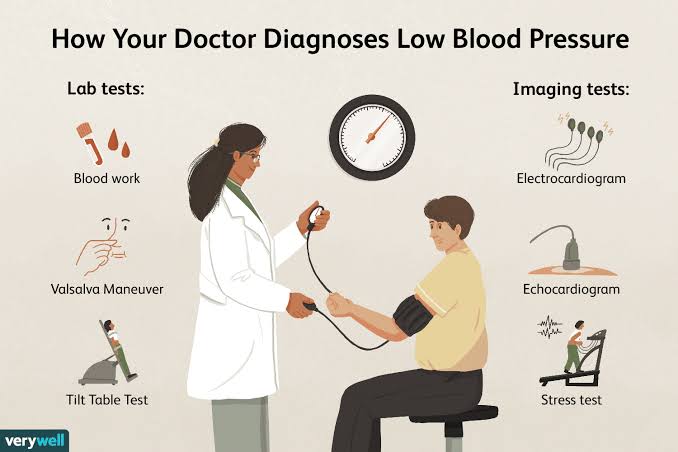
Normal blood pressure is 120/80 mm Hg, where 120 is systolic pressure and 80 is diastolic pressure. Low blood pressure is an abnormal condition in which a person’s blood pressure is much lower than normal, which may cause symptoms such as dizziness. When blood pressure is too low, a person’s blood pressure is much lower than normal. There is a lack of blood flow to the heart, brain, and other vital organs, according to what was published by the “doctor-ndtv” website.
Q: What are the causes of low blood pressure?
Blood pressure refers to the measurement of the pressure in the arteries during the active and resting phases of each heartbeat. When blood pressure drops below 120/80 mmHg, it is known as hypotension. A sudden drop in blood pressure can be dangerous, and you are likely to develop heart disease. The patient also experiences fainting and dizziness.
Some medical conditions that can lead to low blood pressure are:
Heart problems
Pregnancy
Blood loss
Severe infection
Nutritional deficiency
Endocrine problems
Q: What are the symptoms?
Symptoms of low blood pressure may include: fatigue, general weakness, dizziness and fainting, blurred vision, lightheadedness, palpitations, confusion, nausea, temporary loss of consciousness.
Q: What are the risk factors?
Pregnant women are at risk of suffering from low blood pressure. Some risk factors for low blood pressure include:
Blood loss
Exposure to heat
Excessive sweating
Q: What is the treatment?
It is important to check whether you are drinking enough and are not dehydrated. If an underlying disorder is suspected, such as heart disease, you may be advised to go to hospital for tests and treatment. If medications are suspected to be causing low blood pressure, you will likely be advised to go to hospital for tests and treatment. If the doctor changes the medication or dosage, bed rest and assistance with daily activities are needed until the condition improves.
Q: What are the methods of prevention?
Low blood pressure can cause some distressing symptoms in itself. Symptoms such as dizziness, fainting, and confusion are common. To prevent low blood pressure, some simple lifestyle changes can be made.
These include:
Add more sodium to your diet in the form of salt
Avoid eating fast-digesting forms of carbohydrates
Eat smaller meals that are low in carbohydrates
Take vitamins and minerals
Q: What are the complications?
Low blood pressure can happen to anyone at any time, but every time low blood pressure affects someone, it causes a host of health complications:
Heart disease
coma
Repeated fainting spells
Stroke due to poor blood supply to the brain






